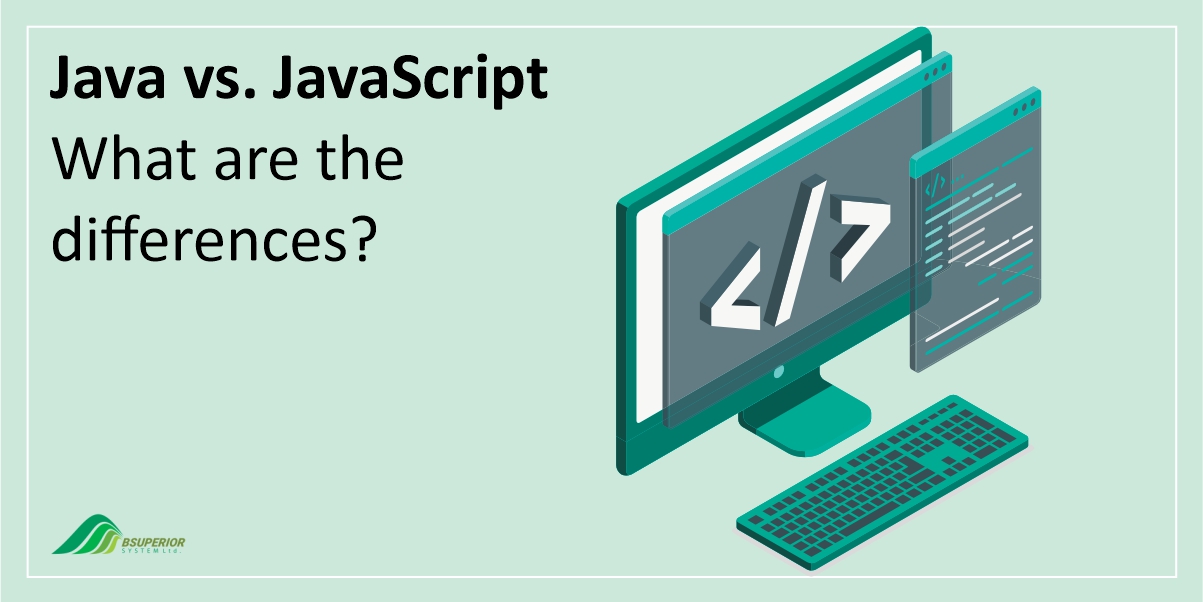Java vs. JavaScript: What are the differences?

Table Of Content
In the world of coding, “Java” and “JavaScript” often come up together, especially for those just starting out. Even though they sound similar, Java and JavaScript are two very different languages, each with its own uses and features. Comparing Java to JavaScript might seem a bit odd at first since they serve different purposes in software development. Both languages are great, but saying which one is better can be quite tricky. So, if you are trying to figure out which one tops the other, especially in web app development, you’re on the right page.
What is JavaScript?
JavaScript is a programming language used to make websites interactive, and it operates within your web browser, making it quite accessible.
For beginners, you might find JavaScript easier to grasp with many online resources available. It is indispensable for developing dynamic websites, and it operates in harmony with HTML and CSS.
The large community of developers using JavaScript means you can easily find assistance when facing issues. Additionally, the existence of numerous libraries and frameworks like jQuery, React, and AngularJS extends JavaScript’s capabilities, making it a potent tool in web development.
One of the advantages is that JavaScript code executes in a web browser, eliminating the need to install any additional software to run it.
Pros of JavaScript:
- Interactivity: Enables the creation of engaging user interfaces, making user interactions on websites intuitive and responsive.
- Ease of Learning: Its syntax is straightforward, making it accessible for beginners with many resources available for learning.
- Versatile: Can handle client-side and server-side development, allowing for a wide range of programming tasks.
- Community Support: A large, active community is ready to help, making finding solutions to problems more manageable.
- Rich Ecosystem: Offers numerous libraries, and frameworks, enhancing its capabilities and speeding up development.
- Real-Time Feedback: Provides instant feedback to users, enhancing user experience by immediate error checking.
- Cross-Platform: Develops web, mobile, or desktop platforms using various frameworks, expanding development possibilities.
Cons of JavaScript:
- Browser Compatibility: Code might behave differently across browsers, requiring extra effort to ensure compatibility.
- Security Concerns: Being executed on the client side, it’s exposed to exploitation like code injection attacks.
- Performance Limitations: There may be a lag in performance for complex computations compared to server-side scripts.
- Single Inheritance: Lacks multiple inheritance features, limiting object-oriented programming capabilities.
- Debugging Difficulty: Debugging can be challenging due to silent errors and variations in browser implementations.
Read more: Web Designer Vs. Web Developer: What are the Differences?
What is Java?
Java is a widely-used programming language that you can use to create a variety of applications.
These include mobile apps for Android, desktop applications for Windows, Mac, and Linux, backend servers for enterprise-level applications, and much more.
It’s also used in certain types of embedded systems and even in supercomputers.
One of the key features of Java is its motto of “Write Once, Run Anywhere” (WORA). This means that once you write your Java code, you can run it on any device that has the Java Virtual Machine (JVM) installed, without having to modify your code.
This is a big advantage when you want to create applications that work across different platforms.
Now, to give you a better understanding, let’s revisit and elaborate on the pros and cons of Java:
Pros of Java:
- Platform Independent: Java’s ability to run on different operating systems without code modification saves time and effort.
- Robust: Designed to reduce crashes and memory leaks, ensuring smooth program operations and increased reliability.
- Secure: Provides multiple security features, helping safeguard against various types of potential threats.
- Performance: Though not the fastest, Java’s performance meets the needs of most types of applications.
- Multithreading: Makes concurrent programming easier, crucial for real-time applications needing simultaneous operations.
- Community Support: A large community offers numerous resources and help, aiding in quicker problem-solving.
- Rich Ecosystem: Abundant libraries, frameworks, and tools accelerate development, reducing required coding effort.
Cons of Java:
- Verbose Syntax: Often requires more lines of code to accomplish tasks compared to other languages.
- Memory Consumption: Higher memory consumption can be a bottleneck in memory-restricted applications.
- Performance: For highly performance-sensitive tasks, lower-level languages might be preferable.
- Complexity: The complex syntax and concepts can pose a steep learning curve for beginners.
- Lack of Modern Features: Some modern programming features are either absent or cumbersome in Java, limiting its ease of use.
JavaScript vs. Java at a Glance
In this section, we will elucidate the distinctive characteristics between Java and JavaScript, enabling you to grasp their individual features and applications.
By delving into these differences, you’ll be better equipped to select the appropriate technology for your venture, navigating the Java vs. JavaScript debate proficiently.
- Purpose:
- Java: Ideal for developing standalone applications, backend microservices, and Android mobile applications.
- JavaScript: Essential for creating dynamic, interactive elements on websites, and enhancing user experience.
- Running Environment:
- Java: Executes on Java Virtual Machine, enabling cross-platform compatibility.
- JavaScript: Executes in the web browser, allowing direct interaction with web pages.
- Syntax:
- Java: Adheres to strict syntax rules, which can be less forgiving to errors.
- JavaScript: Offers a more flexible syntax, which can be easier for beginners.
- Learning Curve:
- Java: The learning curve might be steep due to its strict syntax and complex concepts.
- JavaScript: Generally easier to pick up and start experimenting with, especially for new programmers.
- Community:
- Java: Boasts a robust community, especially in enterprise and Android development.
- JavaScript: Has a vibrant community focused on web development and emerging technologies.
- Usage:
- Java: Common in enterprise-level solutions, mobile applications, and large robust systems.
- JavaScript: Predominantly used for web development, creating interactive and dynamic web applications.
- File Extension:
- Java: Utilizes “.java” file extension for source files.
- JavaScript: Utilizes “.js” file extension for source files.
- Performance:
- Java: Known for higher performance in computational tasks, suitable for large-scale applications.
- JavaScript: Might experience performance lag in computational-heavy tasks but suitable for web interactions.
- Concurrency:
- Java: Offers multithreading for concurrent processing, beneficial in real-time trading systems.
- JavaScript: Manages concurrency with a single-threaded event loop, handling asynchronous operations efficiently.
- Features:
- Java: Rich set of features including strong memory management, high functionality, and robust performance.
- JavaScript: Features like event handling, animations, and real-time updates enrich web user interfaces.
- Modularity and Scalability:
- Java: Supports modularity and scalability, essential for building and maintaining large-scale applications.
- JavaScript: Modularity can be achieved using frameworks, aiding in scaling web applications.
- Security:
- Java: Built with security in mind, offering a variety of security features to protect against threats.
- JavaScript: Client-side execution can pose security risks, though measures can be taken to enhance security.
- Testing:
- Java: Numerous testing frameworks are available, aiding in ensuring code reliability and robustness.
- JavaScript: Various testing libraries and frameworks aid in ensuring code quality and functionality.
- Maintenance:
- Java: Well-structured code and strong typing make maintenance easier, especially in large applications.
- JavaScript: Dynamic typing can pose challenges, though good practices can aid maintenance.
Javascript vs Java: Similarities
Despite their name similarity, they are distinct. However, they do share some similarities. Here’s a breakdown of the common ground between Java and JavaScript:Read more: Laravel vs. CodeIgniter: Which One is Better?
- Object-Oriented: Both Java and JavaScript support object-oriented programming. This means you can organize code around objects, making it structured and reusable.
- Syntax: At a glance, the basic syntax of Java and JavaScript like variables declaration, loops, and conditionals can appear quite similar.
- Community Support: Both have strong community support. This means you can find help, libraries, and frameworks easily for both languages.
- Wide Usage: Both languages are widely used in the industry. Java is common in enterprise-level applications, while JavaScript dominates web development.
- Running on Virtual Machines: Both can run in a virtual machine environment which provides a level of abstraction between the code and the hardware.
- Support for APIs: Java and JavaScript both have extensive support for various APIs, allowing for a broad range of functionality and integration with other systems.
- Continuous Evolution: Both languages continue to evolve with new features and frameworks to stay relevant and address modern programming needs.
- Rich Ecosystem: Java and JavaScript have rich ecosystems with a wide array of libraries and frameworks, which can significantly speed up the development process.
- Tooling: Both languages have excellent tooling support with various Integrated Development Environments (IDEs) and tools for debugging, testing, and profiling.
Java vs. JavaScript, What are the differences?
The choice between Java and JavaScript largely depends on what you want to achieve. Here’s a simple breakdown to help you decide which one might suit you better:
- Web Development: If you’re looking to create interactive and dynamic websites, JavaScript is the better choice. It’s the backbone of web development, working alongside HTML and CSS.
- Mobile Development: For mobile app development, especially for Android, Java is a stronger choice. It has robust tools and frameworks to aid in mobile app creation.
- Enterprise-Level Applications: If you’re developing large-scale enterprise applications, Java offers a robust, scalable solution with strong typing and backend processing capabilities.
- Learning Curve: If you are a beginner, you might find JavaScript easier to pick up initially due to its forgiving syntax. Java’s learning curve may be steeper.
- Performance: Java generally has the edge in performance for heavy computational tasks or large-scale applications.
- Community and Support: Both have strong communities, but if you are leaning towards web development, you might find more immediate resources and frameworks in the JavaScript community.
- Cross-Platform Development: For cross-platform development, various frameworks allow you to use JavaScript for creating both mobile and web applications.
- Backend Development: For server-side or backend development, Java is traditionally strong. However, JavaScript, with frameworks like Node.js, has made significant inroads in this area, too.
- Future Trends: Both languages continue to evolve and have a place in future development trends. They support emerging technologies and paradigms, ensuring continued relevance.
Learn more: Best Programming Language for Microservices in 2023
Summary
Your venture into web development will find a good companion in JavaScript, known for crafting interactive websites effortlessly.
On the flip side, if your voyage is towards mobile or enterprise-level applications, Java’s robust and scalable nature shines.
The vibrant communities backing both languages are ready to lend a helping hand, making your coding journey less daunting.
The choice boils down to the specific needs of your project. Each language, with its distinct advantages, caters to different realms of the tech world.
Hence, there isn’t a one-size-fits-all answer but a project-centric one. So, scrutinize your project needs, align them with what each language has to offer, and you’ll find your answer.
We value your input and believe this content may enhance our services. However, it's under review. If you see room for improvement, please use the "Report an issue" button below. Your feedback helps us excel.
Contact us today at –– and speak with our specialist.




